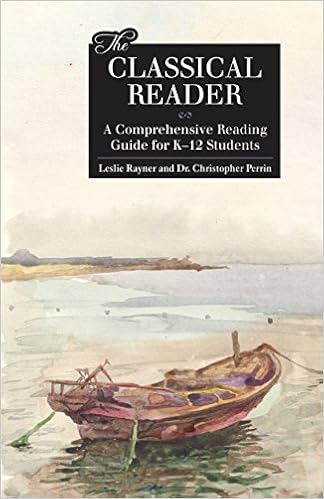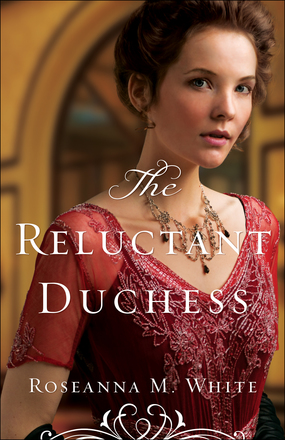Whenever someone comments on one of my reviews on Amazon, I get a little email with a snippet of the review. Yesterday, I received such an email about a comment posted in response to my review of The Midwife's Apprentice, by Karen Cushman. This book is a 1996 Newberry Award winning book.
Two years ago when Autumn and I read it, I was flabbergasted. There's no other word but "flabbergasted" that describes how I felt. I wanted her to read it because it set in Medieval times, a period of history she didn't usually read books about and it was a Newberry Award book. This was the last Newberry Award book I've ever made my children read.
This book was given rave reviews by the Library Journal and many, many reviewers. I was floored as much by the book as by the Library Journal's review. Whoever wrote the review saw The Midwife's Apprentice as a story in which a girl finds her identity and place in the world. On Amazon, the description of the book is one in which the girl gains courage, confidence, and knowledge. And then... there's my review.
"The story centers around Beatle, aka Brat, aka Alyce. She is found by the midwife in a dung heap outside her home trying to stay warm. Brat is the bottom of the food chain and has been as long as she can remember. She endures the continual abuse of the midwife (and her neglect) for reasons that are hard for me to understand. She does not see herself as valuable. To the midwife, she is someone to be used for all she can get out of her. She leaves at one point (spoiler) and still returns at the end of the story trying to gain the midwife's favor.
There are several thematic elements that I do not think are appropriate for 4th and 5th graders in this book and the book was extremely difficult for my daughter to stomach who will be in 6th grade in the coming school year. There is an interesting (if that's the appropriate word) scene in which Brat witnesses the midwife in adultery. There is so much constant emotional and verbal abuse throughout the book. For my daughter, this book illustrated to her what abuse looks like. How horrible it is. How it wrecks people. She couldn't understand why Brat returned to the midwife at the end trying to gain her favor. I explained how people in abusive situations often return to the situation, though it is horrible for them. In my case, I also explained and identified a situation in our extended family and why it turned out as it did. She understood.
This book is probably one of the most depressing books written for children that I've ever read and I would not recommend it to anyone. My daughter would not either. I don't even think I'd recommend it to any middle schoolers. I am honestly shocked that this book received so many rave reviews and that people feel the content of this book is appropriate for 4-7 graders. But, then again, I'm not totally shocked. I just disagree."
In the past, two people had commented on this review that they agreed and were glad for my review. The comment yesterday was of the opposite viewpoint. Whoever it was took the time to comment, but has never commented before on any other book or written any reviews. The comment said that my review was absurd and that it is because of parents like me that there are whiny cry-babies in college who demand that others kow-tow to them.
Wow. My response was this:
"Wow. You don't know me. You don't know what I expose my kids to, but you've made a lot of assumptions. Would you say all of those things to my face?
Did you know that I was a public school teacher? Or that I purposefully choose books to help my children understand the world--like Paper Things (tackles homelessness-wonderful book!), Maniac Magee, Esperanza Rising, selections from The Skin I'm In, and Long Walk to Water. In high school, my children will read Echo by Pam Munoz Ryan and we will discuss it. That is a good book--that really tackles tough topics, but is good for high schoolers to read. I help my kids understand the world they live in and talk to them about everything. We even discussed Katlyn Jenner and her choices. So, you comment is very presumptuous.
Read The Hurried Child. We, as a culture, are pushing things on our kids younger than they are able to understand them. I have seen children take on emotional burdens for people and not be able to cope with them and misunderstand things because they were not emotionally mature enough yet.
No, my children are not whiny and don't expect to be kow-towed to. I am raising my children to become independent adults and teaching them to cope with life. But, you wouldn't know all that--because you don't know me. I am also letting them grow up and not forcing them to give up their childhood before they have to.
Frankly, I found this book very, very sad and my daughter had the same reaction. Beatle is abused, goes back to her abuser and continues to look for her approval at the end of the book. Aside from the adultery, how is that a good example for children of what to do if you find yourself in an abusive situation?! It's not. It's just not."
I think I've expected a negative comment on this review for a long time. We live in a world where technology has taken off the filters that many people used to have on their mouths. Because people aren't talking face to face, they feel free to insult other people online. I tried to respond to the comment in love and grace. I hope I did. This isn't the first time that I've received such a mean comment. There have been many others over the past ten years that I've been reviewing books.
I received a negative comment to another book that I reviewed this week--Teaching from Rest. Honestly, I have expected several negative comments on this review. I was thankful for this comment though--because the commenter simply said that she thought I'd gotten a lot of things wrong. I was okay with that. I disagree with people all the time. Even last week, a friend of mine sat for over an hour discussing the book and she gave me lots of great food for thought. What struck me about the book hadn't struck her, but I appreciated her points and she appreciated mine. We both left with food for thought!
In my world, I value disagreement because it's important. Disagreement is used to help us consider what we really think and believe. Respectful disagreement shows a person that you value what they think and that you are really listening and thinking about what someone has said to you. The questioning that accompanies disagreement keeps people from blindly believing. Please don't get me wrong, I don't think everything needs to be questioned. But, when people--both adults and children don't understand something, disagreement can help them understand and grow.
There are some things that I've seen happen when disagreement isn't allowed. One is that people think their opinions don't matter. Another is that people stuff how they feel until they break free and then run away. Ultimately, when disagreement isn't allowed, unhealthy relationships develop. People agree because they feel they have to, not because they really do. They agree out of fear of the other person and how he/she will react.
But, there is a way that is helpful to disagree and there is a way that isn't. The way the person disagreed with me about the Midwife's Apprentice was not helpful. I chuckled when I got an email this week letting me know that someone else had commented on that review. I was curious, of course.
I chuckled at the sarcastic comment directed at the negative reviewer. The commenter said that obviously the negative commenter had become a very responsible adult who knows how to disagree because of reading literature like that book. The commenter went on to explain that she/he was glad for the review because it wasn't the kind of book they were looking for for their kids.
Disagreeing is hard, but I've come to believe more and more that it is important. But... just because we can say something doesn't mean we should and there are nice ways to say things and there are ways to say things that are, well, just plain mean.


